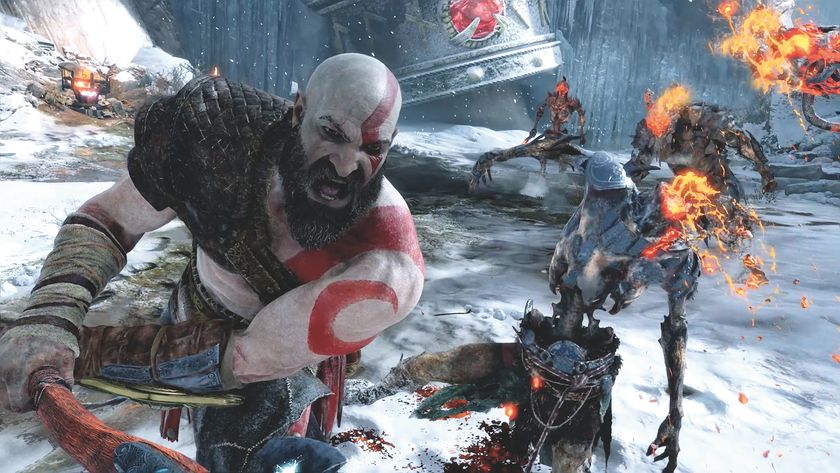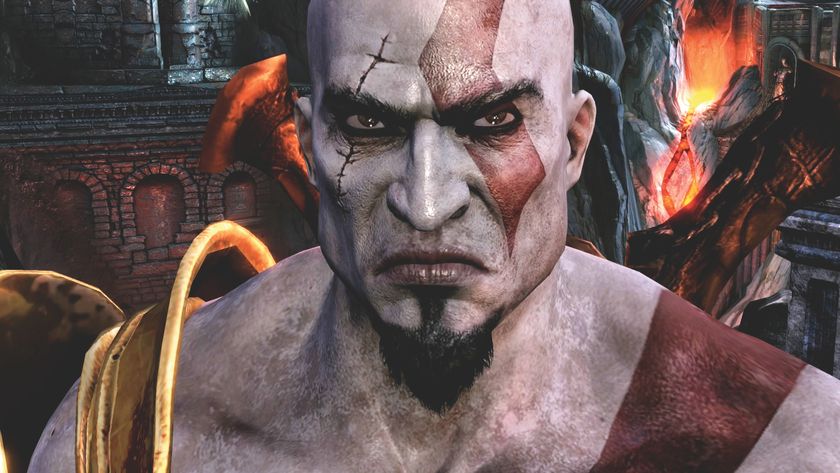Mangled myths: How God of War's mythology stacks up
It's not like it's real history or anything
Scylla

In Greek mythology, shes: A terrifying sea monster that sits on the other end of a narrow strait from Charybdis (a creature that does nothing but create massive whirlpools all day). While described as having six long necks and heads, shes often depicted as a huge woman with tentacles instead of legs and dogs heads that emerge from her waist.
But in God of War, shes: A massive, tentacled sea-beast that seems at least partially inspired by Cloverfield, so at least thats not too far off the mark. Here shes the guardian of Atlantis, which is interesting because Atlantis doesnt even really factor into Greek mythology at all. Also, this versions also a lot more sinister and terrifying than a giant woman ringed with dogs heads probably would have been, so good design choice, Ghost of Sparta team.
Morpheus
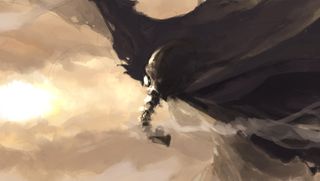
In Greek mythology, hes: The god of dreams and a child of the primordials, who doesnt seem to have taken much of an active role in Olympian politics. Instead, he was content to appear in the dreams of famous and important people, usually to deliver messages from the gods.
But in God of War, hes: The main antagonist of God of War: Chains of Olympus and a craven opportunist. The second sun-god Helios disappears, Morpheus lurches out of the shadows (literally) to try and take over the world with his creepy, monster-filled sleep-fog, only to disappear from the narrative before Kratos ever gets to smash him. Kind of an evil departure for a god whose main job is to insert your gym teacher (although hes sort of also your dad and possibly also your boss, and hes naked) into your dreams.
The Hydra

In Greek mythology, it's: A lizard-like beast with multiple heads. As each head is cut off, two new ones spring up in its place, forcing Hercules--the hero who finally brings it down--to cauterize the stumps as he cuts off each head. Thats pretty much it. If this thing wasn't such a potent metaphor for a difficult foe, wed probably have all forgotten about it by now.
But in God of War, its: A massive sea serpent that hangs out in the Aegean Sea waiting to ambush and wreck ships. It's got three heads, one bigger than the other two, and it can heal itself unless you nail the two smaller heads to the floor first. Thankfully, its weak against having splintered wooden ships masts rammed through its head; no burning required.
Thanatos
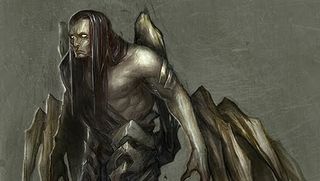
In Greek mythology, hes: The literal personification of death, and a fairly minor deity. Still, you dont get to be death without having everyone hate your guts, so when he does appear in myths, it tends to be so that he can either be outwitted (by Sisyphus, twice) or beaten up (by Hercules, once).
Sign up to the GamesRadar+ Newsletter
Weekly digests, tales from the communities you love, and more
But in God of War, hes: Not about to be comically tricked or easily humbled, thats for sure. The monstrous version of Thanatos that appears in Ghost of Sparta is so powerful even the Olympians seem to fear him, and his appearance as the games final boss marks the only time Kratos has ever really needed help to defeat someone.
Cyclopes
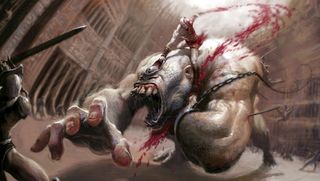
In Greek mythology, they're: The one-eyed children of Gaia, whose imprisonment in the dark pit of Tartarus was part of the reason Cronos went and rebelled against his father--although Cronos promptly locked the Cyclopes back up when he took power. That gave them a reason to create the weapons the gods used to defeat the Titans, before settling into cushy jobs as assistants to Hephaestus.
But in God of War, theyre: Fat, nonverbal idiots who like to just sort of lumber around in in tattered loincloths, bellowing nothing in particular and trying to swat things smaller than themselves with giant clubs. Then, because theyre so stupid, Kratos climbs them and makes them kill all their friends before ripping their eyes out. Stupid, stupid Cyclopes. (And yes, Cyclopes is the plural of Cyclops. Whatd you think it was, Cyclopses?)
Atlas
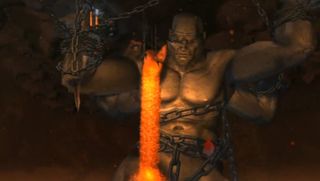
In Greek mythology, he's: A colossal Titan who fought against the Olympian gods when pretty much all the other Titans were doing the same thing. For his insolence, he was condemned to forever stand at one edge of the world, holding the weight of the heavens on his back. (This may have also been because Zeus wanted to keep the heavens--AKA, Ouranos--from getting it on with the earth--AKA, Gaia--because ewwww who wants to think about their grandparents doing that?)
But in God of War, hes: A colossal Titan who destroys the massive pillar that keeps the human world from collapsing into Hades. As punishment, Kratos chains him in place and condemns him to hold the weight of the world itself on his shoulders. And there he stays, even after the Titans rebel and Kratos ruins everything for everybody.
Cronos
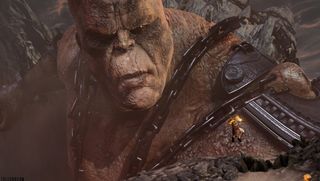
In Greek mythology, he's: The leader of the Titans, who castrated his father, Ouranos, and went on to rule during a Golden Age before devouring his god-children and becoming a central villain of Greek mythology. He was later chopped into pieces by his sons Zeus, Poseidon, and Hades, and then cast into the pit of Tartarus because thats somehow worse.
But in God of War, hes: A huge, beige baby who ate his kids, was overthrown by them and had to crawl around in the middle of a sandstorm with a massive temple chained to his back. While a hidden cutscene in the first God of War indicated he died after a couple more millennia spent in that desert, God of War III went and retconned that by having Kratos brutally murder him. Arguably thats more pleasant than being slowly sandblasted to death with a landmass strapped to your back, no?
Zeus

In Greek mythology, he's: The father of the gods (and most mythological Greek heroes), ruler of Olympus and wielder of lightning, who has a habit of repeatedly seducing mortal and semi-mortal women in the guise of handsome men and assorted animals. Still, Zeus is the guy in charge, so even though he gets up to some pretty hinky stuff, his hearts sort of in the right place.
But in God of War, hes: A dick.
Whatd we miss?

As weve demonstrated here, there are a lot of points at which God of War departs pretty dramatically from Greek myth, and we probably didnt get them all. We know youre dying to tell us which ones we forgot--or worse, screwed up--so why not let us know in the comments below?
And if you're looking for more, check out questions we've always had about Gears of War and the gods we want to slay in God of War 4.

